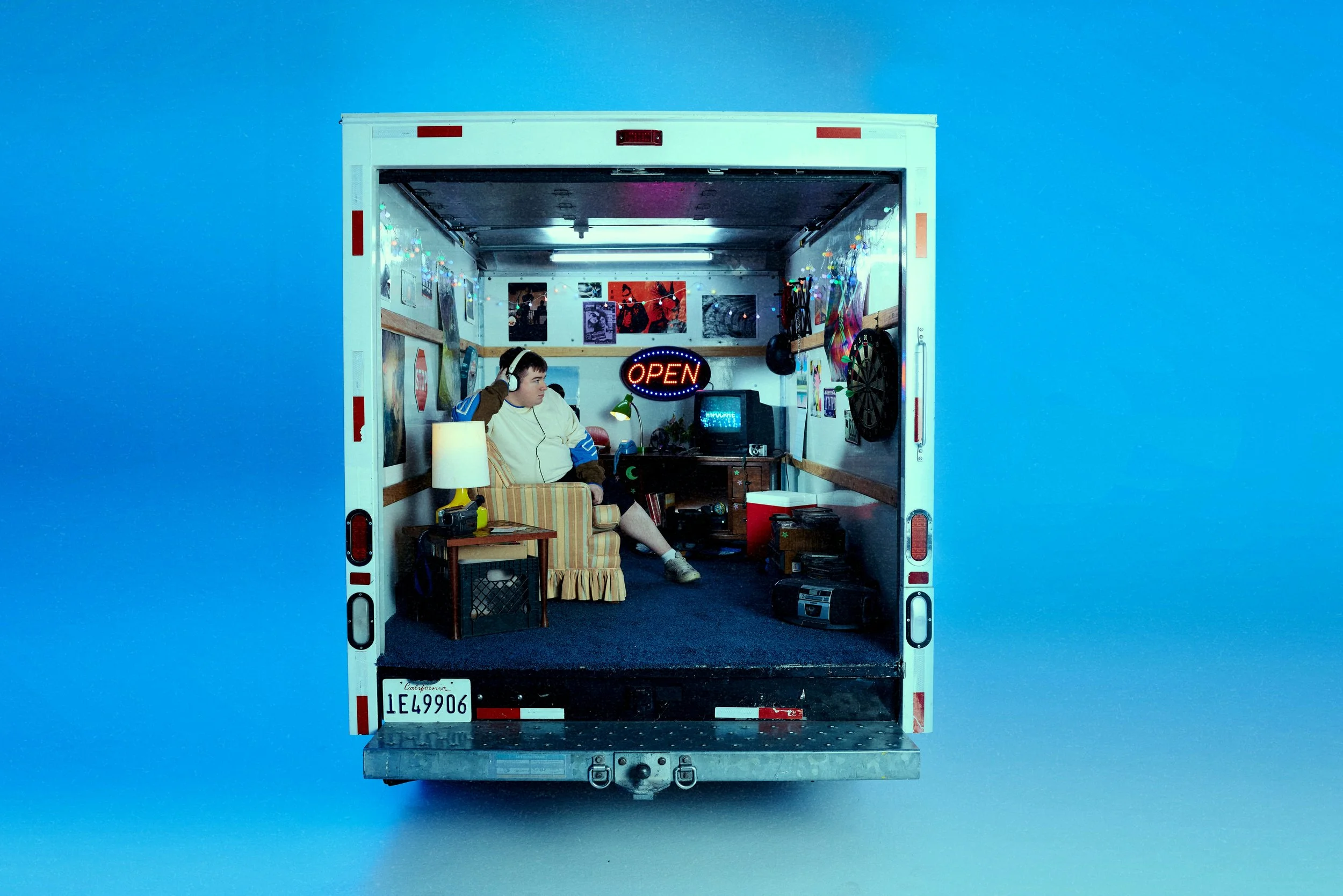Verzache's Next Chapter Starts in the Deep End with "Sinking"
Verzache has always operated outside traditional genre lines, blurring lo-fi intimacy with immersive, genre-bending production. However, with his latest single “Sinking,” the Toronto-based artist, producer, and multi-instrumentalist doesn’t just return with a new track—he brings a sharper sense of perspective.
Once dubbed the king of bedroom pop, Zach Farache made his name through emotionally raw songwriting and DIY aesthetics that helped shape the SoundCloud generation. Now 27, he’s stepping into a new creative phase—one marked by greater depth, precision, and a willingness to sit with discomfort.
And “Sinking” feels like a turning point. Heavy with self-reflection, the track explores guilt, self-destruction, and emotional paralysis without offering easy resolution. But even in its messiness, there’s forward motion. Rather than comfortably revisit the sound that launched his career, Verzache leans into growth—shaping something more refined, more intentional, and no less affecting.
“Sinking” feels like a deeply personal unraveling. What space were you in emotionally or creatively when writing it?
Verzache: Oh man—I was fresh out of a breakup and a super emotional little boy when making that song. it was one of those ones that comes pretty naturally as it's all pouring out of you.
You’ve called “Sinking” the beginning of a new chapter. What’s changed most about your process or mindset going into this era?
Verzache: I like to think every new body of work is a new chapter for me . Whether it’s intentional or not—usually not—my process changes, as do my inspirations... It’s pretty volatile actually [laughs] I feel like whatever I’m into now, I would usually have despised a year or two prior. And that doesn’t just apply to music, to be honest—it’s everything, which is a bit worrisome, [laughs].
Does the track connect to themes across your upcoming music, or does this feel different from some of the sounds/themes that you’re currently working on?
Verzache: It ties in with a feeling shared across the whole album and it’s a little bitter, but honest. That's not to say the songs all sound the same, but they feel familiar.
Your earlier music helped define bedroom pop before it was even a buzzword. How do you feel about that label now?
Verzache: Dude I have no idea, to be frank. I haven’t thought about bedroom pop in ages. I guess I hope there is no stigma associated with it, like meaning I'm less of a musician or something like that. But I think there was a specific sound to that era that I don't specifically share anymore—at least I feel. Yet I am still a household studio artist, so it’s not far off!
From SoundCloud to collaborating with artists like Mac Miller and Young Thug—what’s one lesson from those chapters that shaped how you make music today?
Verzache: Make as much music as your heart desires and put it out into the world. Don't expect anything in return and be grateful if it does happen. Share and listen to others’ music, and ask questions. I know you asked for one lesson, but I feel like the accumulation of those things I said was the key to developing a style or “sound” that I enjoy making. I try to remember the early days when I worked on music because it inspires me to create more honestly. The Mac Miller and Young Thug song was all by chance, and I was lucky enough to have my production used by them! But it was never something I actively tried to make happen, I just found the song one day and was like, ‘hey that’s my song pitched down with Mac Miller and Thug… WTF. But it’s like—it wouldn't have happened if I didn’t put music out as much as I did when I was younger.
There’s a weight to “Sinking” that feels both internal and universal. How do you approach translating personal emotion into something that still feels relatable to listeners?
Verzache: Ooh, well that's cool to hear. Honestly, it might be because I start by producing the song, which is second nature, especially if I’m going through something. But the main thing is that I never write lyrics before I sing. 9 times out of 10, I start singing over what I’ve made immediately into a microphone. I try to feel how I feel instead of bottling it up and just letting out melodies and words. Then the words come along with a lot of emotion, and I can tweak what I need to after the first few takes. Translating a feeling to music is one of the most important things that makes a song great to me, but it’s not always easy.
Sonically, your work has always felt emotionally layered. That being said, how do you know when a song like “Sinking” is done—or done enough to let go of?
Verzache: I almost never know and even thinking about it now makes me anxious [laughs]. But I try to think less is more. I'll always add as much as I can think of and trim it down from there, but yeah, it's hard to tell. I wish it were black and white sometimes, but I guess that would defeat the purpose of it all!







